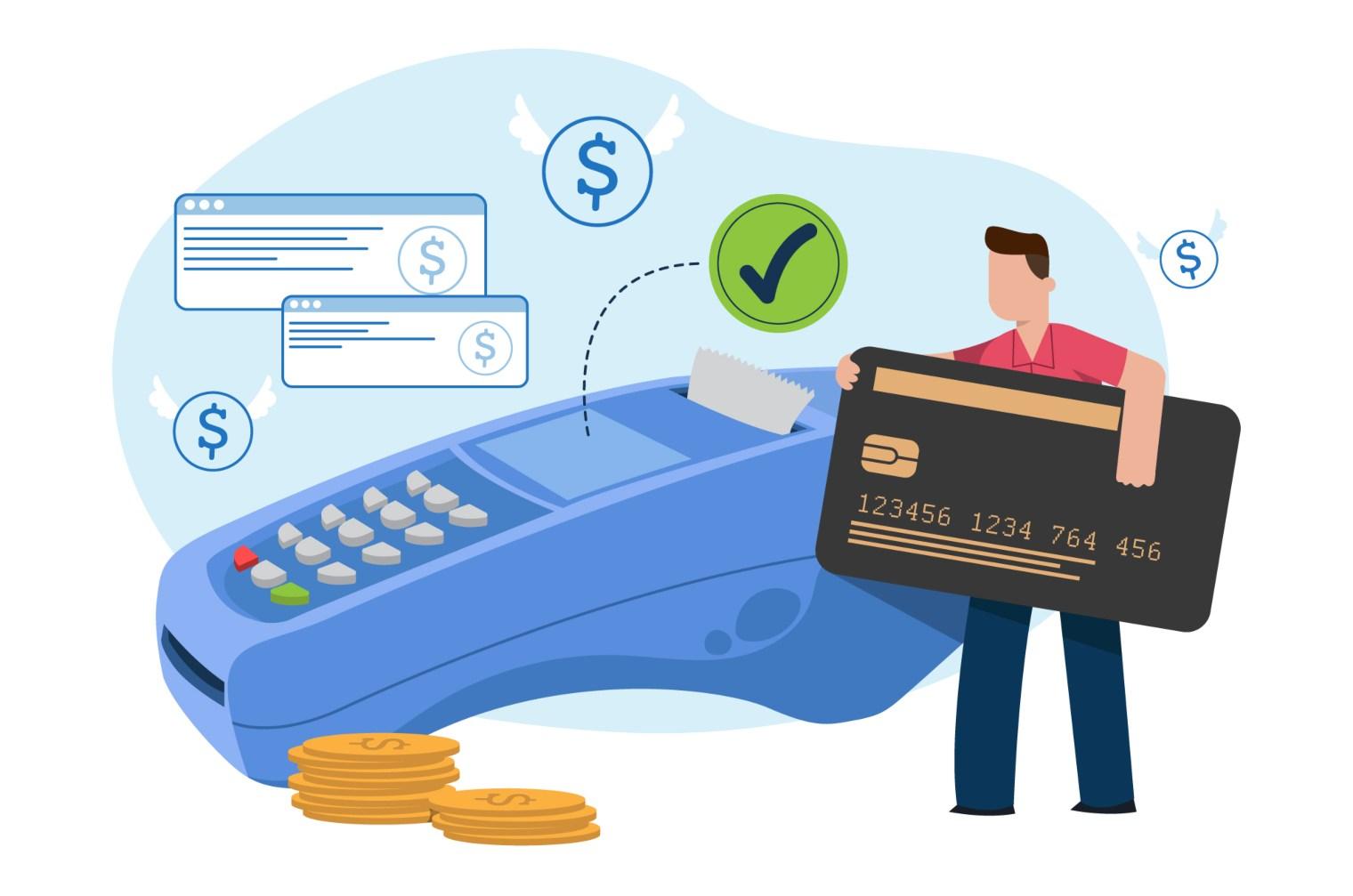B2B payment solutions are designed for companies to increase the speed and efficiency of business-to-business transactions. These include digital payment processing options like credit card payments, ACH transfers, and wire transfers.
Cash transactions can be impractical for larger purchases and carry theft, misappropriation, or loss risks. This is why a B2B payments solution is essential for businesses.
Table of Contents
Credit Cards
Credit cards are a standard method for B2B payments due to convenience. It allows businesses to handle transactions easily and manage cash flow effectively, especially since B2B transactions usually involve larger quantities and higher values. Nevertheless, the fees for credit card processing can accumulate rapidly.
Fortunately, payment automation software can help reduce these costs. It can process discounts and refunds and automate the payment process by capturing all the necessary information from the transaction in a way that can’t be reverse-engineered. This solution makes managing accounts payable, tracking payments, and adjusting budgets easier for businesses.
Another common method for making B2B payments is a wire transfer, which can be completed within 24 hours but can come with hefty bank fees. However, it’s an excellent option for making large and frequent B2B payments because it provides security that other methods don’t offer.
Alternatively, businesses can use virtual cards to make online B2B payments. These are 16-digit card numbers generated for each transaction that can be used only once. They’re attractive for B2B payments because they offer zero transaction fees, high-end security, and cashback rebates. They can also be used for recurring payments, perfect for easing the strain on a company’s working capital.
ACH Transfers
In the business-to-business (B2B) world, ACH transfers are among the most popular payment methods. Compared to credit cards, they’re much cheaper and allow businesses to make payments quickly. However, B2B ACH payments can also be challenging to track and reconcile. To streamline operations, numerous businesses are adopting automated B2B payment processing. This solution offers several benefits, including reducing the time spent monitoring and chasing invoices and eliminating data entry errors.
In addition to cutting down on the amount of work employees have to do, B2B payment automation also makes it easier for businesses to take advantage of early-payment discounts offered by vendors. Discounts usually have specific terms and conditions that must be met to be applied. Manual processes can be slow and error-prone, and when accounts payable is overburdened, there’s often no time to apply these discounts.
B2B payment automation can also help to reduce fees by encouraging a shift from paper checks to electronic payments. This process can be implemented by introducing new payment methods or replacing existing ones that don’t offer the desired level of convenience or security. For example, some companies are replacing vendors that refuse to accept online payments with ones that do. This approach can be complemented by encouraging ACH payments, which have been proven to offer similar levels of security as paper checks and are processed in real time.
Wire Transfers
B2B payments are often made for higher-value goods and services, so it’s no surprise that they take more time to process than P2P or retail transactions. Whether made by credit card or wire transfer, choosing the right payment system for your business is essential. Look for a solution that lets you pay however you like, including ACH and virtual cards, while providing the security and convenience that B2B customers expect.
A wire transfer is an electronic money transfer via a network of banks and transfer service agencies worldwide. It requires the sender and recipient to have an agreement and a set of details, such as the receiver’s bank account number. While a wire transfer may be more expensive than an ACH, it’s generally quicker to settle and provides greater flexibility for the receiver.
A global payments platform makes it easy to onboard payees in minutes, making them ready to receive digital payments. This saves your company the cost of remittance fees and helps you keep accounts payable processing costs low. It also streamlines your accounts receivable and enables you to gather valuable cash rebates that you might not be able to get through other payment methods. A comprehensive B2B payments solution also helps you match invoices with purchase orders and goods receipt notes to reduce payment delays, which can be costly for any business.
Electronic Checks
While paper checks seem like a thing of the past, they’re still used in many transactions between business entities. A B2B payment automation solution can take the arduous process of paying vendors by check and transform it into a quick, real-time process that saves you money on processing fees.
ACH payments (electronic checks) are digital transactions that move money directly from one party’s bank account to another’s, bypassing the need for a physical document. As a result, they’re much faster than traditional paper-based checks and can be used for recurring payments.
When looking for a provider that supports B2B ACH payments, identify a solution with flexible workflow engines allowing you to configure approvals to match your accounts payable processes. Look for a provider that’s experienced in the space and can talk about how it can help your AP team reduce their time spent processing payments.
In addition to reducing your processing fees, an e-check payment solution can make qualifying for the lowest possible interchange rates easier. To achieve this, your payment system should be able to capture all the data on a standard paper check, including your payee’s bank account information and payment preferences. In most cases, this data can be collected through a simple web form or over the phone.
Also Read – How Important Is a Ribbon Mixer?




